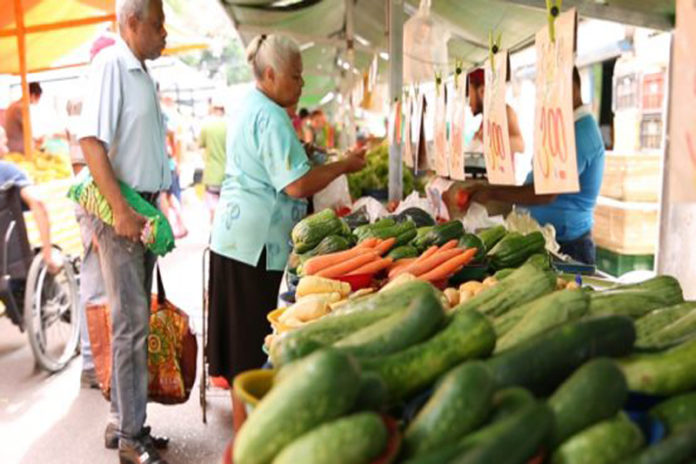Patricia Constante Jaime is a nutritionist, PhD in public health, professor at the Faculty of Public Health of USP
by Copywriting-
The role of Consea in the democratization of public administration and the conformation of a synergistic political agenda between agriculture, food, nutrition, health, environment, sustainability and social justice.
Provisional measure N. 870 January 01, 2019, published by the new federal government in order to establish the administrative organization of the organs of the Presidency of the Republic and its ministries, brought bad news to the public policy on food and nutrition security.
It repeals item and article of the Organic Law of food and nutritional security/Losan, from 2006, in order to lead to the extinction of the National Council of Food and nutritional security/Consea in the organisational structure of the National Food Safety system and Nutritional – Sisan.
The national Consea was an advisory body to the Presidency of the Republic whose institutional competence dealt with social control in the formulation, implementation and monitoring of the national policy on food and nutrition security. It represented a space for consolidating society’s participation in policies aimed at promoting healthy and sustainable food systems and defending a public administration agenda that defends citizens from violating the human right to Proper feeding.
Created, in 1993, at the time of the government Itamar Franco and on the demand of civil society articulated in the movements ethics in politics and action of citizenship against Hunger, misery and life, the Consea was, in a historical perspective, the first attempt to raise the debate On food and nutrition security for an intersectoral, plural and participatory political arena. Due to the transitory nature of the then government and the fragile insertion of the theme in the Brazilian political agenda, the Council was extinct in 1994, one year after its proposition. Recreated in 2003, Consea assumed the important task of not only being an institutional space for dialogue between the government and society, but also of being the locus for the participatory elaboration of the Organic Law Project for Food Safety and Nutritional status in the country, which occurred in 2006.
Since then, we have observed the disruption of punctual and fragmented actions towards a new paradigm in the construction and governance of public policies in food and nutritional security. Progressively, there have been more articulated programs and actions of social protection, overcoming poverty and reducing inequalities, fostering family-based agricultural production and access to food. In this spectrum, is the improvement of the normative framework of the historical National School Feeding program and its interface with the public procurement programs of food produced by family farmers. Initiatives such as this were produced and articulated under the Consea and were recognized by the United Nations in 2014, as responsible for the departure of Brazil from the map of hunger.
Brazil has achieve[com o CONSEA]d international recognition in the area and has become a reference for many countries
On the other hand, new expressions of food insecurity, such as the loss of traditional dietary patterns, increased consumption of ultraprocessed foods, obesity and the exposure of the population to food contaminated by pesticides, gain proportions Epidemic. Food systems, including the processes of production, transformation, distribution, marketing and food consumption, are strongly related to the food and nutritional transition observed in recent decades and need to be repositioned to Not only to offer food, but to promote healthier and more sustainable diets for all.
The Consea, bravely, has taken on the defense of the sociocultural dimension of food and the valorization of a fair, healthy and sustainable food system, both socially and environmentally, where biodiversity is valued and protected, the food of Truth without poison and traditional dietary patterns with respect and redemption of identities, memories and food crops. It thus made the defense of food as a central element of life, a social right, a material and intangible good and part of the cultural patrimony of the people and of the Brazilian nation. It is worth recognizing the paradigmatic shock with sectors that, at another extreme, see food only as merchandise endowed with monetary value, in a national economy anchored in agricultural commodities.
Brazil has achieved international recognition in the area and has become a reference for many countries. In 2016, the publication of a renowned panel of specialists in global nutrition – the global nutrition Report Stakeholder Group – pointed out the factors explaining the Brazilian protagonism in the food and nutrition security agenda, being: the activism of Non-governmental organizations and social movements, the production and use of data and indicators of food and nutrition security and, finally, the creation of Consea as a space for governance, engagement and independent dialogue between government and Civil society.
Understanding the formation of a food and nutrition security policy agenda means considering that it can reflect or not the interests of the different sectors of society, depending on the degree of participatory democracy, of mobilisation of each sector and institutionalization of mechanisms that enable the participation of the subjects, especially the most vulnerable and dependent on the action of the State.
The provisional measure episode N. 870 is worrying because it denies the successes of the Brazilian experience; Compromises the continuity and improvement of the national food and nutrition security policy; Weakes public administration by denying social participation as a structuring element of the democratic state of law; Induces a cascade effect on the governance models of state and municipal policies; And, not least, it leaves a message that, for the government that begins, the exercise of citizenship seems only to be important at the time of voting in the electoral process.















